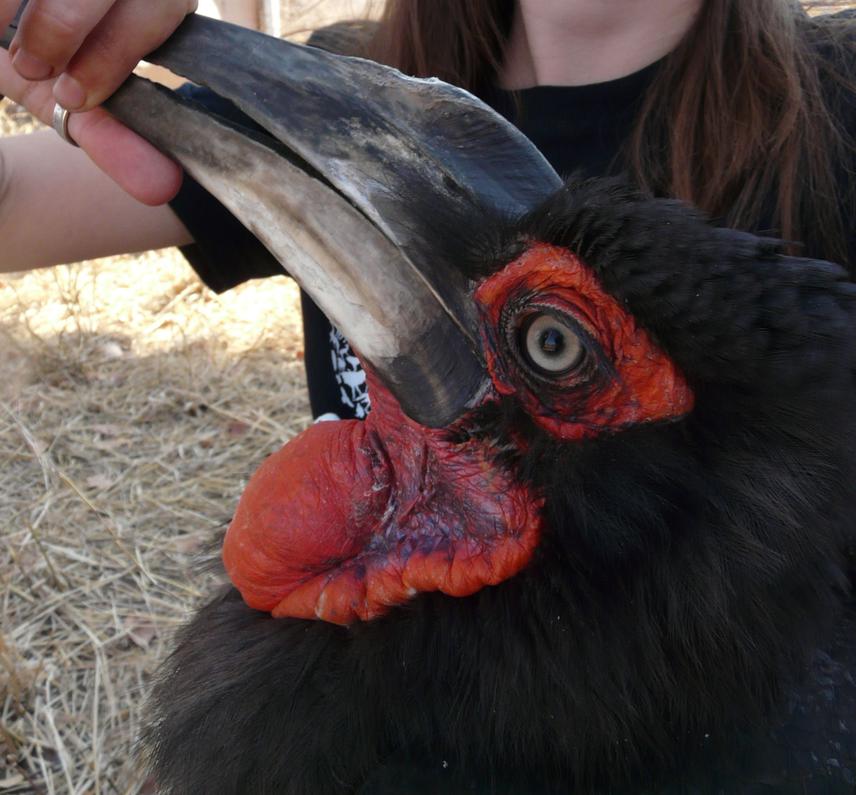Lucy Kemp
Other projects
8 Jan 2020
Trans-Disciplinary Conservation Combining Cultural Beliefs, Science and Technology for Population Restoration of the Endangered Southern Ground-Hornbill
The Mabula Ground Hornbill Project has a mandate to slow and then reverse the decline of the endangered Southern Ground Hornbill in South Africa. This is being achieved through education and awareness, harvest of redundant chicks and reintroductions back into suitable historic range sites.

The Mabula Ground-Hornbill Project has been trialling harvest, hand-rearing, capture, husbandry and release techniques since its formation in 1999. Most have been perfected and now we are expanding the programme in order to make a difference to the national population. The Project’s formal mandate is to slow and then reverse the decline of the species in South Africa. South Africa’s population is endangered (Red Data uplisting to be published soon) and declining, particularly outside of formal protected areas. The species have territories over 100 km2 and require specific nesting trees, large trees with large enough hollows. Loss and degradation of their habitat, coupled with accidental poisoning, persecution for breaking windows (a territorial behaviour), losses to the live and traditional medicine trades, electrocution and disease are the varied threats the species faces.
We harvest redundant second chicks (in collaboration with the South African National Parks Board, Endangered Wildlife Trust and Percy FitzPatrick Institute of African Ornithology) for hand-rearing and socializing. This in no way impacts the productivity of the wild nest and provides us with a stock of chicks for inclusion in the captive-breeding programme (with PAAZAB studbook) and for release. Several of these test release sites already make ideal ‘bush-schools’ but we need to establish more to grow the programme sufficiently. The Mabula Ground-Hornbill Project (as mandated by the Species Recovery Plan) leads the re-wilding of harvested ‘doomed’ Southern Ground-Hornbill chicks. The second chicks are harvested, captive-raised and socialized with captive adults to ensure they have the best chance of becoming functional adults, whether for captive-breeding or release. Before release they must learn survival skills in a protected, free-roaming, managed group of hornbills. To expand the final release programme we are setting up a number of these ‘bush schools’ to ensure all the energy put into the rescued chicks is not lost by releasing them before they can fend for themselves. An extensive education and awareness campaign is undertaken with every phase of this Project.